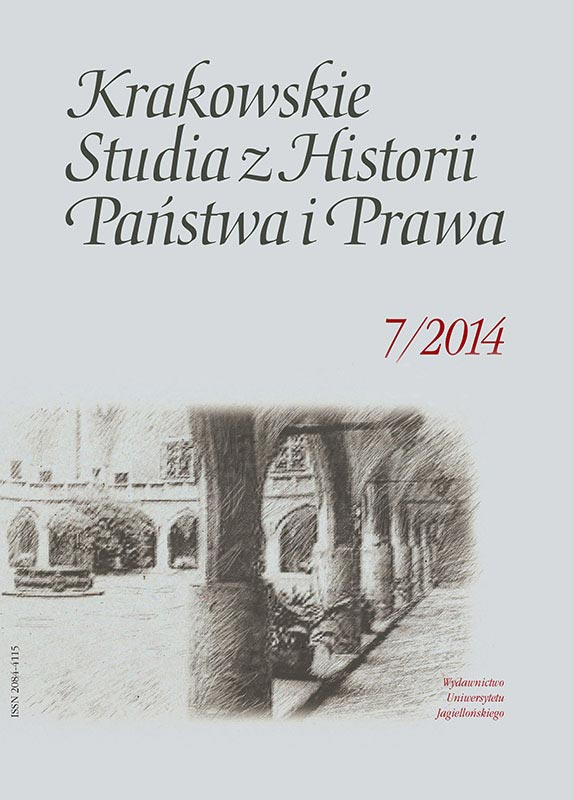Norman Podhoretz a początki amerykańskiej „wojny o kulturę”
Norman Podhoretz and the Beginning of the American “culture war”
Author(s): Andrzej BrykSubject(s): Law, Constitution, Jurisprudence, History of Law
Published by: Wydawnictwo Uniwersytetu Jagiellońskiego
Keywords: Norman Podhoretz; neoconservatism; “Commentary”; liberalism; cold war; John F. Kennedy; Ronald Reagan
Summary/Abstract: The “culture war” is a term which refers to a fundamental dispute over the identity of western civilization. In the United States it was revealed in the contention concerning anti-communism. Norman Podhoretz and his monthly “Commentary” had played a significant role in it. The above journal, published by the American Jewish Committee was “an offensive outpost” of neoconservatism which was just being created in the USA. The publications related, above all, to topics associated with culture, religion, as well as international politics. The intellectuals associated with the “Commentary” fought against anti-Americanism, leftist-liberal counter-culture and communism. They were criticized by thinkers representing the American radical liberal left who drew on the policy of F.D. Roosevelt, H. Truman and J.F. Kennedy. The neoconservatives criticized the policy of concessions towards the Soviet Union, paving the way for the views and activities of R. Reagan several years later. Relying more on empiricism and “commonsensical” thinking than on a theoretical approach to natural law, Podhoretz and his adherents criticized the conduct of the liberals. As a literary critic and columnist, Podhoretz was known for his rather boisterous and open style of writing. Regarded as a great threat by the progressive left, he undermined the very principles of historical determinism and exclusive legitimization of leftist political views. Although by no means an exception, through his activities he was able to exert an effective influence on the American society. He led to the emergence of phenomena which did not exist in Europe dominated by the so called generation ‘68. The anti-communist rhetoric propagated by Podhoretz had clearly helped R. Reagan in his race to the presidential office. The sources of Podhoretz’ views can be seen in his relationship to literature and art which constitute a reflection of the truth about the humankind. He was opposed to treating them exclusively as a tool, but also rejected their complete autonomy. He valued the moral values rooted in the Judaic religious system and negated the so called “superiority complex” of numerous leftist intellectuals. Such a system of values had exerted a strong impact on his subsequent views, which were strongly publicized in the “Commentary”.
Journal: Krakowskie Studia z Historii Państwa i Prawa
- Issue Year: 7/2014
- Issue No: 2
- Page Range: 383-394
- Page Count: 12
- Language: Polish

